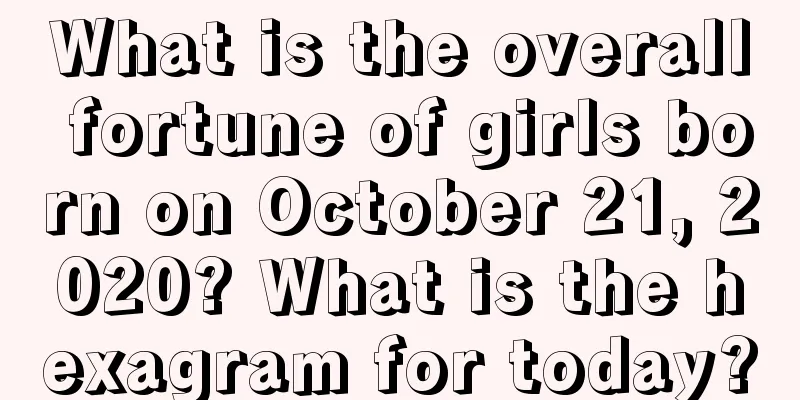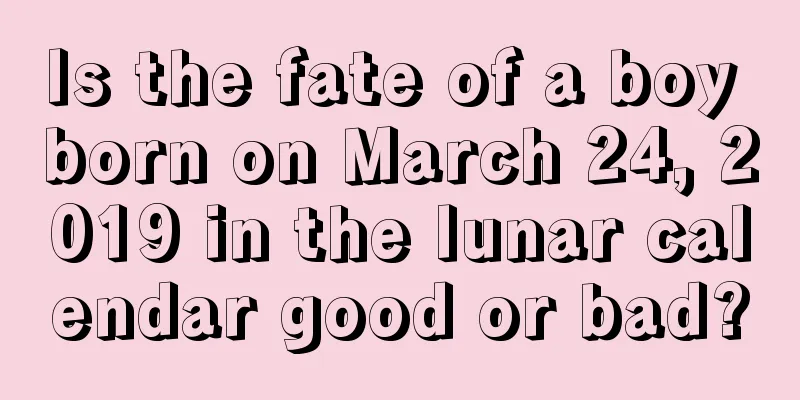|
Introduction: In our traditional culture, the God of Wealth is the god who is in charge of the world's wealth, but there is more than one God of Wealth. Which gods are called the God of Wealth? You will know after reading the following. Folk wisdom is compiled into stories, including many Feng Shui stories. Let’s take a look at them. 1. Zhao Gongming - the god of wealth in the world Among all the gods of wealth worshipped by the world, the most influential one is Zhao Gongming. According to the Complete Collection of Gods from Three Religions, Zhao Gongming was a supernatural being with many abilities and infinite changes. He could drive away thunder and lightning, call for rain and wind, reduce plague and malaria, and save lives and resolve disasters. Therefore, people say that "the Marshal's contribution is unparalleled." If you want to make money through business, just pray to Zhao Gongming and everything will go as you wish. Therefore, people worship him as the God of Wealth. In old New Year pictures, Zhao Gongming is often depicted wearing an iron crown, holding a precious whip, with a black face and thick beard, riding a black tiger, and having a ferocious look. Therefore, people also call him the God of Wealth.
The folk legend about Zhao Gongming has a long history. As early as the Jin Dynasty, in Gan Bao's "Soushen Ji", Zhao Gongming was one of the underworld gods who specialized in taking people's lives. During the Eastern Jin Dynasty, Tao Hongjing's "Zhen Gao" recorded that Zhao Gongming was a plague god who caused diseases. During the Sui and Tang Dynasties, "The Complete Collection of Gods from the Three Religions" recorded that in June of the eleventh year of Kaihuang in the reign of Emperor Wen of the Sui Dynasty, five strong men appeared in the air, wearing robes of green, red, white, black and yellow, and each holding an object in his hand: one held a ladle and a pot, one held a leather bag and a sword, one held a hammer, one held a fan, and one held a fire pot. Emperor Wen asked the historian Zhang Juren, "Who are they? What disasters and blessings are they in charge of?" Zhang Juren replied, "They are five strong men from all directions. They are five ghosts in heaven and five plague gods on earth: Zhang Yuanbo, who is in charge of spring plague; Liu Yuanda, who is in charge of summer plague; Zhao Gongming, who is in charge of autumn plague; Zhong Shigui, who is in charge of winter plague; and Shi Wenye, who is in charge of central plague. These are diseases caused by the operation of heaven and earth." Emperor Wen asked, "How can we stop them and save people from the plague?" Zhang Juren replied, "Plague is a disease sent by heaven and cannot be stopped." As a result, many people died of plague that year. At that time, Emperor Wen ordered the establishment of a shrine and on June 27th issued an imperial decree to confer the title of general on the five strong men.
The character of Zhao Gongming as a plague ghost became more specific in the Complete Biography of Immortals, but he was changed from one of the five plague ghosts to one of the eight ghost generals: During the Yuan and Ming dynasties, there were eight ghost generals, each leading hundreds of millions of ghost soldiers and traveling around the human world. Liu Yuanda led the ghost soldiers to spread various diseases, Zhang Boyuan led the ghosts to spread plague, Zhao Gongming led the ghosts to spread dysentery on the earth, Zhong Ziji (Zhong Shigui) brought sores and swelling to the earth, Shi Wenye brought cold diseases, Fan Juqing brought soreness and barrenness, Yao Gong brought the five poisons, and Li Gongzhong brought madness and red eyes, bringing many disasters and diseases to the earth, taking the lives of tens of thousands of people and causing countless deaths.
It was not until the publication of "The Investiture of the Gods" that Zhao Gongming was no longer filled with evil, ghostly and plague spirits as he had been in the past. Jiang Taigong, at the order of Yuanshi Tianzun, conferred the title of "Golden Dragon Ruyi Zhengyi Longhu Xuantan Zhenjun" on Zhao Gongming, whose duty was to be in charge of gold, silver and treasures and to welcome good fortune. From then on, Zhao Gongming began to take charge of the world's wealth and became the God of Wealth. Zhao Gongming is in charge of finances and can make people harmonious and prosperous, which is in line with people's desire for wealth. Therefore, Zhao Gongming is widely worshipped by the people, and his original identity as the god of the underworld, the god of plague, and the ghost commander is gradually forgotten. The God of Wealth Zhao Gongming worshipped by the people is always depicted wearing a helmet and armor, a battle robe, holding a whip, with a black face and thick beard, and looks mighty. There are often treasure bowls, big ingots, precious beads, corals and the like around it, which further enhance the effect of abundant wealth.
2. Bigan - the fair and unfeeling uncle of King Zhou In the old days, the God of Wealth was divided into civil and military gods, and families who respected both civil and martial arts had their own responsibilities. Families that value literature worship the God of Wealth, while families that value martial arts worship the God of Wealth. Although the ways of literature and martial arts are different, both can bring wealth. In addition to the military god of wealth Zhao Gongming, there is also the civil god of wealth Bigan. In folk New Year pictures, Bigan's statue is dressed as a civil official, wearing a prime minister's gauze hat, five long beards, holding a ruyi in his hand, wearing a dragon robe, and wearing gold ingots on his feet. The dress of Wen Caishen is similar to that of Tianguan, the difference between the two is that Tianguan has a kind look and a smile on his face, while the statue of Wen Caishen Bigan has a serious look and a clear face.
According to historical records, Bigan was the uncle of King Zhou of Shang and a loyal minister. At that time, King Zhou of Shang was tyrannical, immoral, and misruled. According to the Romance of the Investiture of the Gods, King Zhou believed Daji's evil words, created tortures, and killed his ministers who gave advice to him. Despite the direct advice from ministers such as Shang Rong and Bigan, King Zhou never repented. After the Lu Tower was completed, King Zhou believed Daji's lies and wanted to meet the fairy princesses. Daji came up with a plan. On the night of the 15th, she invited all the fox demons in the Xuanyuan Tomb to transform into fairies, gods, and fairy princesses to come to the Lu Tai for a banquet, to enjoy the emperor's Nine Dragon Banquet and to confuse King Zhou. At the banquet, the fox smelled terrible. The fox demon with little kung fu skills actually revealed its tail. Bigan, the uncle of King Zhou, who was at the banquet, saw it very clearly and told Huang Feihu, the King of Wucheng, about it after the banquet. After investigation, it was found that all the fox demons were vixen in Xuanyuan's tomb. Bigan and Huang Feihu then led their troops to block the fox's cave and set fire to it, burning all the foxes to death. Bigan also picked out unburnt fox skins and made a coat, which he presented to King Zhou in the severe winter, in order to confuse Daji's mind and prevent her from being at ease in front of the king. When Daji saw that the coat was made entirely of the fur of her descendants, she felt heartbroken and hated Bi Gan so much that she vowed to dig out his heart.
One day, King Zhou was having breakfast with Daji and his new concubine Ximei when he suddenly saw Daji vomiting blood and falling unconscious. Ximei said that it was Daji's old illness that relapsed, and she needed a piece of Linglong heart boiled into a soup to treat it. She also calculated that Wei Yabi was more like Linglong's heart with seven orifices. King Zhou hurriedly asked Bigan for his heart. Bigan said angrily, "The heart is the master of the body. It is hidden in the lungs and sits between the six ears. It can withstand all evils but will die if it is invaded. If the heart is right, the hands and feet will be right; if the heart is not right, the hands and feet will not be right. The heart is the spiritual seedling of all things and the root of the four phenomena. My heart is hurt, how can I live? Although I, an old minister, will live on, the country will be in ruins and all the wise and capable will be gone. Now the foolish king has listened to the words of the new witch and has ordered me to remove his heart. I am afraid that as long as Bigan is alive, the country will be alive. But if Bigan dies, the country will perish!" King Zhou said angrily, "Your Majesty orders my minister to die, and I will be disloyal if I don't die. You slandered you on the stage and violated your loyalty. If you don't obey, the warriors will take my heart with swords!" Bigan cursed Daji, kowtowed eight times in the Taimiao, then took the sword and cut open his belly, removed his heart and threw it on the ground. He walked out of the five gates, mounted his horse and left.
First, when Jiang Ziya was leaving Chaoge, he went to the prime minister's residence to say goodbye. Seeing that Bigan looked gloomy, he knew that he would encounter great misfortune in the future, so he gave Bigan a magic talisman and told him to grind it into ashes and drink it when in danger, which would keep him safe. Before entering the court, Bi Gan knew that it would be difficult for him to succeed, so he drank the talisman water left by Jiang Ziya, so that he could move forward without bleeding after his heart was cut out. Later legend has it that Bigan did not die after taking Jiang Ziya's miraculous medicine, but instead came to distribute treasures among the people. Bigan was honest, loyal, fair and selfless by nature. After his heart was hollowed out, he became a heartless person. It was precisely because he was heartless and fair in his work that he was worshipped as the God of Wealth by later generations. At that time, it was said that people who did business under Bigan's protection were impartial, traded fairly, and did not cheat each other, so Bigan was widely praised and revered by the world. 3. Fan Li - Tao Zhugong, who made money wisely Fan Li is also a literary god of wealth. He was an outstanding politician, thinker and strategist during the Spring and Autumn Period and the Warring States Period, and also a wealthy businessman who was good at making money.
Fan Li, whose courtesy name was Shaobo, was a man of great intelligence and had unique insights since he was young. Later he was appointed as a scholar-official by King Gou Jian of Yue. The Yue army was defeated by the Wu army, and Fan Li and the King of Yue went to serve the King of Wu, Fu Chai. After returning to his country, he assisted the King of Yue in enriching the country and strengthening the army, and finally defeated the State of Wu. After defeating Wu, the king and his ministers of Yue held a banquet to celebrate the victory. All the ministers were happy except Gou Jian, who looked unhappy. Fan Li observed this slight detail and immediately realized the big picture: the King of Yue had fought for the country at the cost of the lives of his ministers, and now that he had achieved his wish, he did not want to give any credit to his ministers. So, Fan Li resolutely resigned from his post to the King of Yue, and retired with his family and followers, sailed across the East China Sea in a small boat, and came to the State of Qi.
Fan Li and his son cultivated the land by the sea in Qi State. After working hard, they soon accumulated a fortune of hundreds of thousands of gold. The people of Qi heard of his virtue and asked him to be prime minister. Fan Li sighed: "If I stay at home, I can make a fortune. If I work in office, I can become a high official. This is the highest goal for a commoner. It is not auspicious to be respected for a long time." So he returned the seal of the prime minister, distributed all his money to his friends and neighbors, took only the most valuable items, secretly left Qi capital, and quietly came to Taodi. Fan Li believed that Tao was located in the center of the world and was an important route for trade. He could get rich from it and use it as a guarantee for his second half of life, so he lived there and called himself Tao Zhugong. ("Tao" refers to the pottery land, or it is a code word for "escape"; "Zhu" is said to be a symbol of a rich man, or it implies that the person once served as a high-ranking official; "Gong" is said to be a respectful title for elders and peers, or it implies that the person once served as a duke). Fan Li and his son accumulated tens of thousands of wealth by farming, raising livestock and doing business, becoming wealthy people in Tao. Later, the two families distributed their wealth to the people. People all over the world praised Tao Zhugong and worshipped him as the God of Wealth.
Tao Zhugong's business wisdom has always been admired by the people, so many business methods of getting rich are attributed to Tao Zhugong. For example, the Eighteen Taboos in Doing Business: Be diligent in business and avoid laziness; specify prices and avoid ambiguity; be frugal in expenses and avoid extravagance; know the person when buying on credit and avoid excessive sales; check goods in person and avoid excessive purchases; be cautious when going in and out and avoid being sloppy; employ people honestly and avoid being crooked; distinguish between good and bad and avoid mixing them up; repair goods and avoid being casual; agree on deadlines and avoid being careless; buy and sell at the right time and avoid delays; be prudent with money and avoid being confused; be responsible when dealing with things and avoid making false requests; check accounts and avoid being lazy; be humble when accepting and avoid being impatient; be calm and avoid being rude; speak politely and avoid being impetuous... Most of the Eighteen Taboos are the experiences of merchants, attributed to Tao Zhugong. This shows that he is the wise image of the God of Wealth in the minds of folk merchants. Fan Li worked hard all his life and accumulated tens of thousands of gold. He was good at business, good at managing finances, and able to distribute money widely, so it is natural that he is called the God of Wealth. 4. Guan Yu - Guan Gong, a man of loyalty and trustworthiness Guan Gong, also known as Guan Yu, is a household name in China, known to everyone, young and old. Since modern times, more and more people regard Guan Gong as an omnipotent protector god, industry god and god of wealth. The author of "Folk New Year Deity Picture Exhibition" said: "Guan Gong is regarded as the god of war, the god of wealth and the god who protects merchants. When people have disputes, they ask for his wisdom and decision. In times of drought, people pray to him for rain and for prescriptions for patients. He is regarded as the most powerful person to drive away evil spirits and fierce gods."
According to a legend recorded in Xu Dao's "General History of Gods and Immortals of All Dynasties", Guan Gong's previous life was "Jieliang Old Dragon". During the reign of Emperor He of Han Dynasty, there were severe droughts in Hedong for many years. The old dragon felt pity for the people, so that night he created clouds and fog and drew water from the Yellow River to bring rain. When the Jade Emperor saw that the old dragon had disobeyed the will of heaven and taken the sealed water without authorization, he ordered the Heavenly Court to behead him with the sword and throw his head to the ground. Pujing, a monk from Xie County, found a dragon head by the stream. He took it to his hut and placed it in a jar. He chanted scriptures for nine days. Then he heard a sound from inside the jar. He opened the jar and found nothing. However, a baby was born in Guan Yi's family in Baochili, Xieliangping Village, east of the stream. His nickname was Shou. He studied under a teacher when he was young and was named Changsheng. Later, he named himself Yu, with the courtesy name Yunchang. According to the Romance of the Three Kingdoms, Guan Yu killed a local villain who bullied others by taking advantage of his power, and then fled to other places. At the end of the Eastern Han Dynasty, he swore an oath of brotherhood with Liu Bei and Zhang Fei in Peach Garden, vowing to share life and death, and to raise an uprising army together to fight for supremacy in the world. In the fifth year of Jian'an, Cao Cao sent troops to defeat Liu Bei. Liu Bei surrendered to Yuan Shao. Cao Cao captured Guan Yu and, impressed by his loyalty, made him a Lieutenant General. Later, Cao Cao realized that Guan Yu had no intention of staying long, so he tried to bribe him with large amounts of gold, silver, jewelry, high-ranking officials, and beautiful women, but Guan Yu was not moved by money, fame, or gain. When Guan Yu learned that Liu Bei was with Yuan Shao, he immediately sealed his gold and hung up his seal, passed through five gates and killed six generals to find Liu Bei. Liu Bei proclaimed himself King of Hanzhong and appointed Guan Yu as the leader of the Five Tiger Generals. When Cao Cao learned about this, he was furious and conspired with Sima Yi to join forces with Sun Quan to take Jingzhou. Liu Bei appointed Guan Yu as "General Front", and made him the governor of Jingxiang County, and ordered him to take Fancheng. Guan Yu divided the troops of Jingzhou to capture Fancheng, but unfortunately fell into Lu Meng's trap and lost Jingzhou. He fled to Maicheng at night, was defeated and captured, and died unyieldingly. "Romance of the Three Kingdoms" later recorded: After Guan Yu died, his ghost lingered and wandered until it appeared in the sky above Yuquan Mountain in Dangyang County, Jingzhou, and shouted, "Give me back my head!" The old monk Pujing on the mountain heard it and said, "The past was not the same as now, let's not talk about everything... Now the general is killed by Lu Meng, and he shouts 'Give me back my head'. Then who can he ask for the heads of Yan Liang, Wen Chou (all killed by Guan Yu) and others?" Guan Yu suddenly realized and converted to Buddhism.
Guan Yu was loyal, brave and steadfast throughout his life, and he was a devout believer in Buddhism, Taoism and Confucianism. During the Ming and Qing dynasties, Guan Yu was extremely prominent and was respected as the "King of Martial Arts" and the "Martial Saint". As a result, people believed that Guan Yu had "all-powerful" magical powers such as managing life and fortune, predicting imperial examinations, curing diseases and eliminating disasters, and exorcising evil spirits. People from all walks of life paid homage to Guan Yu, the "all-powerful god". The reason why people worship Guan Gong as the God of Wealth is probably because Guan Yu is not moved by gold, silver and treasures, which is in sharp contrast to some greedy and righteous people in the world. People, especially businessmen, admire Guan Gong's loyalty and trustworthiness and hope that Guan Gong will be their patron saint for making money. In addition, people hope that businessmen will adhere to integrity in their transactions and regard Guan Gong as a fair person to maintain the traditional moral order.
5. Five Road Gods and the Immortal Official of Profits: the Partial God of Wealth who Brings in Wealth The Wenwu God of Wealth is what people call the main God of Wealth. In addition to the main God of Wealth, there is also the partial God of Wealth, which refers to the position of the statue of the God of Wealth. The partial god of wealth in folk culture often refers to the god of wealth known as the "Five-Road God". In the Investiture of the Gods, the Five Gods of Wealth refer to Marshal Zhao Gong, Xiao Sheng, the God of Attracting Treasures, Cao Bao, Chen Jiugong, the Messenger of Fortune, and Yao Shaosi, the Immortal Official of Profit. "Five Road Gods" also refers to road heads and traveling gods. Yao Fujun of the Qing Dynasty said: "The Five-Road God is commonly known as the God of Wealth. In fact, he is the god of the five gates. You can get wealth from any of the five directions when you go out." The five directions refer to the east, west, south, north and center, meaning that you can get good luck and make a fortune if you have the protection of the Five-Road God when you go out. The Five Gods of Wealth are all auspicious gods and are common images in folk New Year pictures. They are deeply loved and worshipped by people. The fifth day of the first lunar month every year is the birthday of the Five Gods of Wealth. As soon as the day got light, people in cities and towns could hear bursts of firecrackers. In order to be the first to receive the God of Wealth, most businesses hold a welcoming ceremony on the fourth night of the New Year, preparing sacrificial items such as fruits, cakes, and pig heads, and inviting the God of Wealth to drink. At that time, the host will hold incense and candles and go to the five wealth halls in the southeast, northwest, northeast and center to welcome the God of Wealth. After the five wealth gods are all welcomed, the God of Wealth paper horse will be hung up, and incense and candles will be lit. Everyone will bow down and worship, and then burn the God of Wealth paper horse.
In the early morning of the fifth day, people rush to open the door, beat drums and gongs, and set off firecrackers to welcome the God of Wealth. After receiving the God of Wealth, everyone gathers together to have a road-opening banquet, which lasts until dawn when the business opens. It is said that this can ensure a year of "prosperous business and abundant wealth." There is a vivid description in "Wu Ju" by Cai Yun of the Qing Dynasty: Seek wealth on five days, and a year's wish will be fulfilled in one moment. Be careful that other places welcome the gods early, and rush to get ahead the night before. The so-called "抢路头" means rushing to welcome the Five Gods of Wealth. People rush to set off firecrackers early in the morning to pray for getting rich.
Among the gods of wealth worshipped by the people, no matter it is Marshal Zhao Gong or the God of Blessing, they are always accompanied by the God of Profit (one of the Five Gods of the Road). Therefore, the God of Profit can be said to be a genuine partial god of wealth. The origin of the Li Shi Xian Guan is recorded in "The Romance of Investiture of the Gods": The Li Shi Xian Guan's real name is Yao Shaosi, and he is the apprentice of the great god of wealth Zhao Gongming. Later, he was named the god of welcoming good fortune and happiness by Jiang Ziya. The so-called "Li Shi" has three meanings: one is the profit obtained from doing business; the second is auspiciousness and luck; the third is the money given during celebrations or festivals, such as New Year's money. People believe in him in the hope that the God of Wealth will bless them with a happy life and good luck. In modern times, when the New Year comes, some people, especially businessmen, would paste pictures of the Fairy of Profit on their doors, and add a fortune-attracting boy. The couplets read: "The fortune-attracting boy is here" and "The Fairy of Profit is here", which implies that wealth will come in abundance and good luck will come. 6. Liu Haichan: The quasi-god of wealth who gives money to the poor Among the many gods of wealth in Chinese folk beliefs, there is one type that can only be regarded as a quasi-god of wealth, meaning that he has not been given the title of god of wealth. However, because this god can bring certain fortune to people and assumes some of the responsibilities of the god of wealth, people regard him as the god of wealth. Liu Haichan is the most representative quasi-god of wealth among them.
Liu Haichan, whose original name was Liu Hai, was a man of the Five Dynasties. He was from Yanshan (now Beijing). He was a Jinshi in the Liao Dynasty and later served as prime minister to assist Yan Lord Liu Zongguang. This person has always been familiar with the "Huang-Lao school of thought".
It is recorded in the General History of Gods and Immortals of All Dynasties: One day, a Taoist priest who called himself Zhengyangzi (Lü Dongbin) came to see Liu Hai. Liu Hai treated him with courtesy. The Taoist priest demonstrated to him "the demonstration of purity and inaction, and the key to the golden elixir"! Ten eggs and ten gold coins are piled up together, with one gold coin between each egg, and the stacks are stacked up into a tower. Liu Hai exclaimed, "It's too dangerous!" The Taoist replied, "Living in glory and wealth, but also facing worries and troubles. The danger of being a prime minister is even greater than this!" Liu Hai suddenly realized. Later he resigned from his position as prime minister, changed his name to Liu Xuanying, and took the Taoist name "Haichanzi". He worshipped Lü Dongbin as his teacher, became an immortal, and traveled between Mount Zhongnan and Mount Taihua. Kublai Khan, the founder of the Yuan Dynasty, conferred the title of "Haichan Mingwu Hongdao Zhenjun" on him, and Emperor Wuzong of the Yuan Dynasty conferred the title of "Haichan Mingwu Hongdao Chunyou Emperor".
From this point of view, Liu Hai was a Taoist who gave up wealth after enlightenment and had no connection with the God of Wealth. The reason why Liu Hai became the God of Wealth may be due to his Taoist name - Hai Chanzi. Toad, also known as toad, is ugly in appearance and its secretions are highly toxic and harmful to the human body. It is listed as one of the five poisonous animals (scorpion, snake, centipede, gecko, and toad). People also worship toads because their secretions, called toad venom, have cardiotonic, analgesic and hemostatic effects. "Taiping Yulan" quoted "Xuan Zhong Ji" as saying: "A toad has horns on its head. If you eat it, you can live a thousand years. It can also eat mountain spirits." At that time, people regarded toads as auspicious objects that could avoid the five diseases, suppress evil spirits, promote longevity, and bring wealth. They were spiritual and divine objects. Liu Hai is famous for his Taoist name "Chan" and was elevated to the throne of the God of Wealth because of the legend of "Liu Hai playing with the golden toad".
Liu Hai playing with the golden toad appears in a large number of folk New Year pictures and paper-cuts, and painters of successive generations have also left behind many excellent works of this theme. In these works, Liu Hai is depicted as a naughty boy who is dancing and smiling, with fluffy hair hanging down in front of his forehead. He is dancing with a string of coins, and a giant three-legged golden toad is holding the other end of the string of coins and jumping, which is full of joy, auspiciousness and wealth. The golden toad that Liu Hai was playing with was not an ordinary toad, but a giant three-legged golden toad, which is rarely seen in the world. The golden toad is regarded as a spiritual creature, and the ancients believed that obtaining it could make one rich. This is the main basis for Liu Hai to be portrayed as the God of Wealth. It is said that Liu Hai used a trick to capture the golden toad that had been practicing for many years and became an immortal. Liu Hai plays with the golden toad, and the golden toad spits out gold coins. Wherever he went, he gave money and helped many poor people. People respected him, were grateful to him and called him a "living immortal." For this purpose, a Liu Hai Temple was built, and his story was made into a drama and sung everywhere. (Li Wenjuan, Department of Philosophy and Religion, Minzu University of China) |










